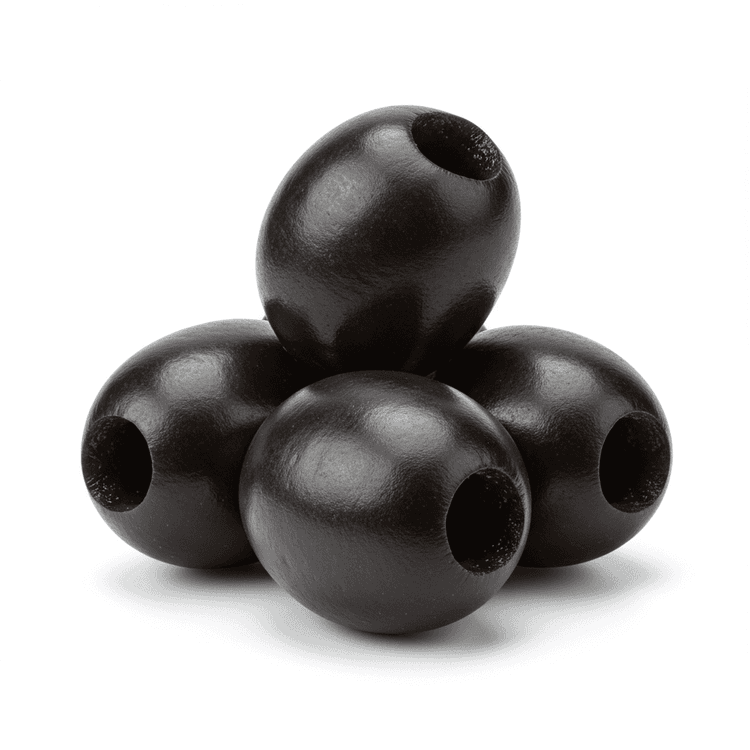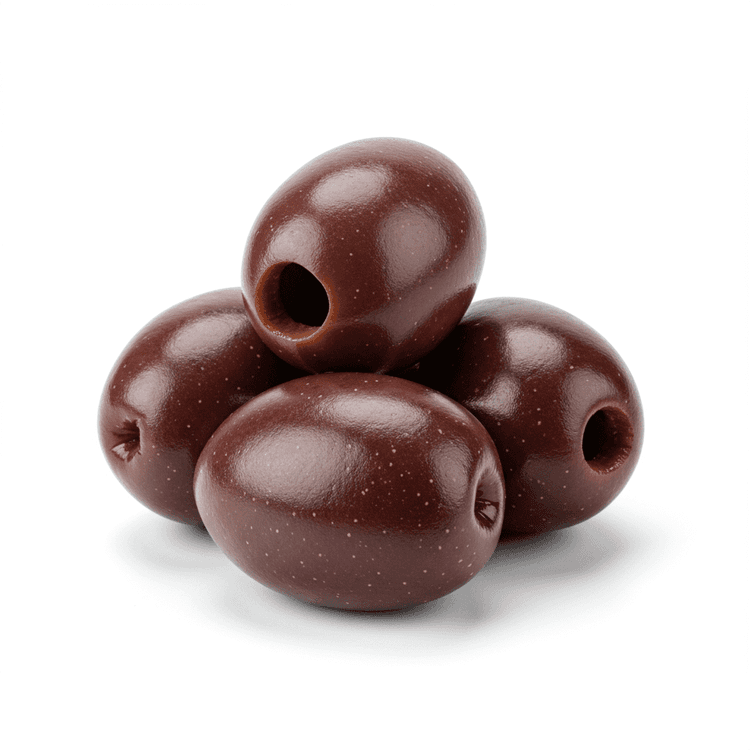
Black Olive
Black olives are a type of olive that has been fully ripened, giving them a deep, rich color and a mild, slightly tangy flavor. They are softer in texture compared to green olives and have a smooth, glossy skin. Black olives are often brined or cured, which enhances their savory and slightly salty taste. These versatile fruits are a staple in Mediterranean cuisine and are widely used for their earthy flavor and ability to complement a variety of dishes.
Common Uses
- Add black olives to Mediterranean salads like Greek salad for a burst of savory flavor and a touch of saltiness.
- Use black olives as a topping for pizzas, where their mild tanginess pairs well with cheese and tomato sauce.
- Blend black olives into tapenade, a flavorful spread made with olive oil, capers, and garlic, perfect for bread or crackers.
- Incorporate black olives into pasta dishes, such as puttanesca, to add depth and a briny kick.
- Include black olives in antipasto platters alongside cured meats, cheeses, and pickled vegetables for a classic appetizer.
- Chop black olives and mix them into bread dough or focaccia for a Mediterranean-inspired baked good.
Nutrition (per serving)
Nutrition (per serving)
Calories
115.0kcal (5.75%)
Protein
0.8g (1.6%)
Carbs
6.3g (2.29%)
Sugars
0.0g
Healthy Fat
8.4g
Unhealthy Fat
2.3g
% Daily Value based on a 2000 calorie diet
Nutrition (per serving)
Calories
115.0kcal (5.75%)
Protein
0.8g (1.6%)
Carbs
6.3g (2.29%)
Sugars
0.0g
Healthy Fat
8.4g
Unhealthy Fat
2.3g
% Daily Value based on a 2000 calorie diet
Health Benefits
- Black olives are rich in healthy monounsaturated fats, which can support heart health and provide a satisfying texture in dishes.
- They are a good source of vitamin E, an antioxidant that helps protect cells and supports skin health.
- Black olives contain iron, which is important for energy production and oxygen transport in the body.
- Their savory, slightly salty flavor makes them a versatile ingredient in Mediterranean dishes, salads, and tapenades.
- Black olives are low in carbohydrates, making them a popular choice for low-carb and keto diets.
- They provide dietary fiber, which supports digestion and helps maintain a feeling of fullness in meals.
Substitutes
Chefadora AI is here.
Experience smarter, stress-free cooking.
Storage Tips
Store black olives in their original brine or liquid in an airtight container in the refrigerator to maintain freshness and flavor. If they are canned or jarred, transfer any unused olives to a clean container with their brine after opening. For longer storage, you can freeze black olives, though their texture may soften slightly upon thawing. Always check for signs of spoilage, such as an off smell or discoloration, before using.

